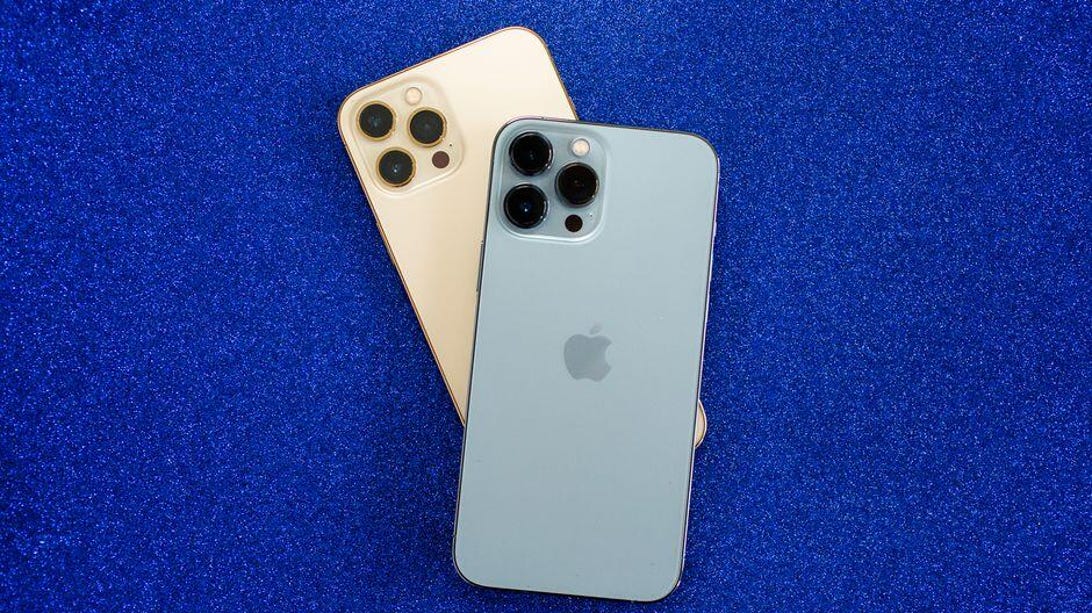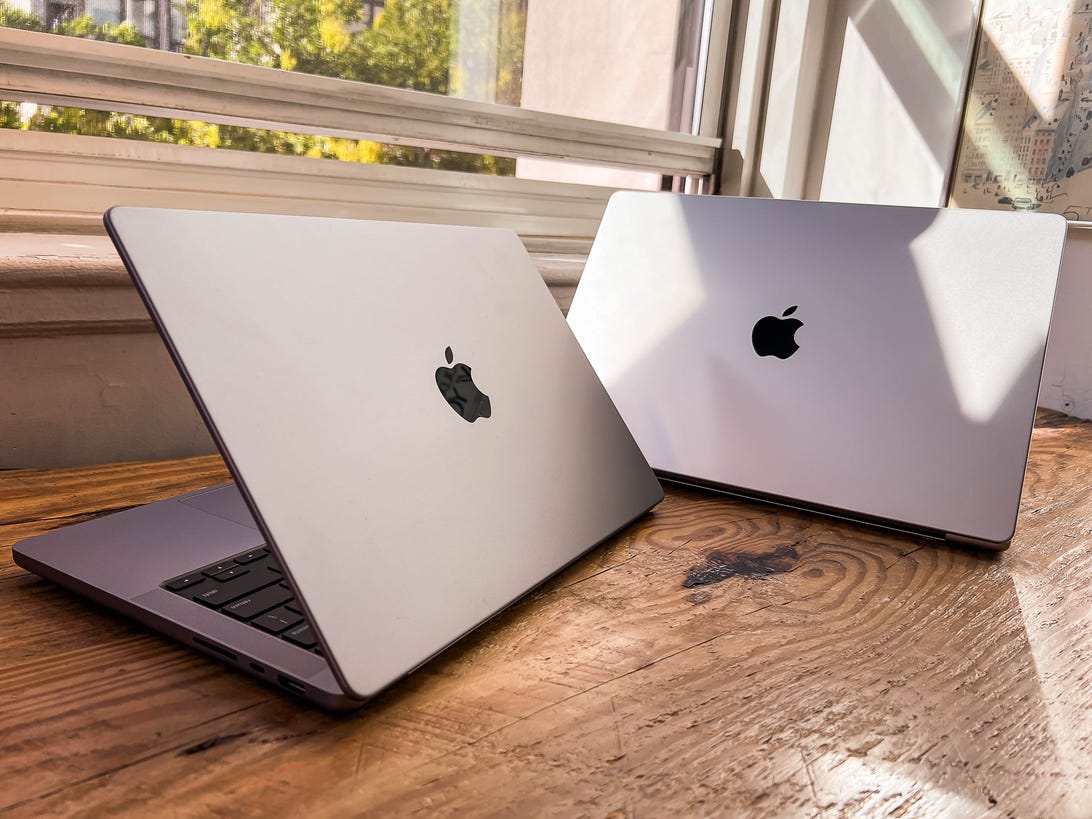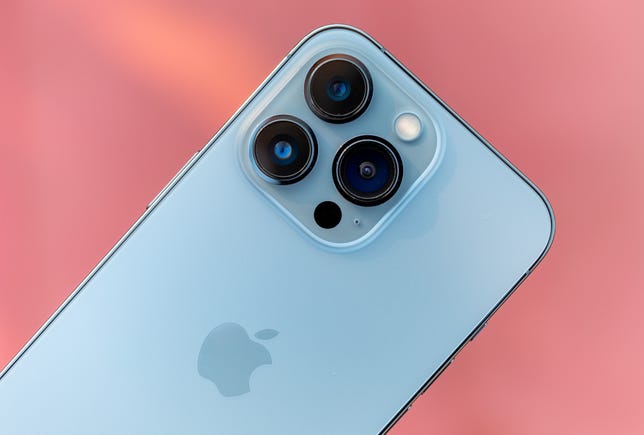
Apple says it’s still in the beginning of a “5G upgrade cycle” driven by new wireless technology.
CNETApple’s iPhone marked its 15th year on the market with its strongest sales ever, helping push the tech giant’s sales and profits to all-time highs despite the continued spread of the coronavirus pandemic and supply chain constraints.
The demand for Apple’s smartphone, in a line ranging from the $699 iPhone 13 Mini to the $1,099 iPhone 13 Pro Max, was so high during the three months ending in December, that sales rose more than 9%, to $71.6 billion. That was more than half the company’s overall revenue, which itself rose to $123.94 billion, up double-digits from last year.
Apple CEO Tim Cook noted that the iPhone held top market-share spots around the world, including in the US and Australia, where it was among the top five, China, where it was among the top four, and the UK, where it nabbed two of the top three slots.
“We knew that we had the beginnings of something fundamentally transformative,” Cook said in a conference call with analysts, remarking on the iPhone’s 2007 launch. “None of us could have predicted the incredible and meaningful impact it would have on all of our lives.”
Apple’s stock rose more than 3%, to $163.73 per share, after closing regular trading roughly flat for the day. Investors pushed the company’s shares above $3 trillion for a short period earlier this month before they fell about 12% with broader market fluctuations.
Apple’s latest financial disclosures are just the most recent sign of how the coronavirus pandemic has affected the world economy in radically different ways. Though many businesses are struggling, our reliance on big tech appears to be fueling increased financial performance across the industry. But the success isn’t the same for all these companies.


The iPhone 13 Pro, making a splash.
Andrew Hoyle/CNETMicrosoft, which announced last week that it plans to buy game maker Activision Blizzard for an eye-watering $68.7 billion, said its second fiscal quarter sales jumped 20%, while profits rose 21%. Netflix, meanwhile, said its subscriber base grew slower than expected during the holidays. Crucially, the company forecast subscriber growth far below analyst expectations, prompting its stock to plummet 25% after the news.
Even Apple had a dark spot in its report. The company’s CFO, Luca Maestri, said continued supply chain issues cost Apple more than $6 billion in sales over the holidays, something he hopes will decrease by March.
“The level of constraint will depend a lot on other companies — what will be the demand for chips from other companies and other industries. It’s difficult for us to predict, so we try to focus on the short term,” he told Reuters in an interview Thursday.
Apple said iPad sales in particular were affected, marking an uncharacteristic drop of 14% during the holidays amid “very significant” supply shortages and in spite of “very strong” demand across its product line.
“Despite the supply shortages, our installed base of iPads reached a new all-time high during the quarter,” Maestri said on the conference call with analysts. He added that about half the customers purchasing an iPad were new to the product.


Apple’s latest MacBook Pro laptops got positive marks from reviewers and customers.
Dan Ackerman/CNETBreaking records
The iPhone wasn’t Apple’s only bright spot. The company said sales of its Mac computers were also strong, rising more than 25% to nearly $10.9 billion, bolstered by newly redesigned MacBook Pro laptops. Apple said much of the customer demand is response to the new M1 chip, meant to replace the microprocessing brains that it used to rely on from Intel. Cook said that’s helped bring in new customers, in addition to upgraders.
“Customer satisfaction is is off the charts,” he said.
Apple’s “wearables, home and accessories” division, like AirPods and HomePods, posted sales of more more than $14.7 billion, up more than 13%. And its services business, which include the $5 per month Apple TV Plus subscription service and new $10 per month Apple Fitness Plus, rose to more than $19.5 billion. Apple said it now counts 785 million paying subscriptions across its business lines.
All told, Apple said it notched profits of nearly $34.6 billion, up 20% from the same last year. That translates to $2.10 per share in profit, off in overall revenue, which itself was up more than 11% from the $111.44 billion reported last year. It was also enough to beat average analyst estimates, which were $1.89 per share in profits on $118.66 billion in revenue, according to surveys published by Yahoo Finance.
All that’s contributed to Apple’s cash pile, which is now more than $202 billion.


Apple’s iPhone 13 Pro.
Stephen Shankland/CNETStill about the iPhone
Though Apple’s various businesses are reporting record demand, the iPhone is still the company’s most important product. It represented nearly 58% of Apple’s overall revenue, and it’s an anchoring product many of the company’s most popular accessories are built around, including the AirPods and the Apple Watch.
But Apple’s also faced repeated questions about how to keep the product fresh despite annual updates. The iPhone 13’s key improvements included its battery life, screen quality and cameras. The iPhone 12, meanwhile, offered the company’s first major redesign in years, as well as the first inclusion of 5G ultrafast wireless and newly hardened front glass, which it called “ceramic shield.”
The iPhone has become “an integral part of so many people’s lives now more than ever,” Cook said, noting that the active install base continues to grow, currently sitting at an all time high. (Apple earlier has said it counts more than 1 billion active iPhones worldwide, but has since switched to publishing counts of all active devices. Apple said it counted 1.8 billion active devices over the holidays, up from 1.65 billion the same time last year, and 1.5 billion in 2020.)
Cook added that he expects 5G wireless will continue to drive further sales as people upgrade and switch to Apple devices. “Even though this is the second product announcement that has 5G in it, we’re really in the early innings of 5G,” he said, noting that customer surveys outside Apple have indicated many people still haven’t upgraded. “We maintain a very optimistic view on long term.”
As to the future, Cook noted that Apple’s been increasing its research and development spending more than normal, most recently increasing it more than 22% during the holidays to $6.3 billion. “There are areas that have more than piqued our interest and we are investing in those,” he added. “There’s quite a bit of investment going into things that are not on the market at this point, as there always are.”



